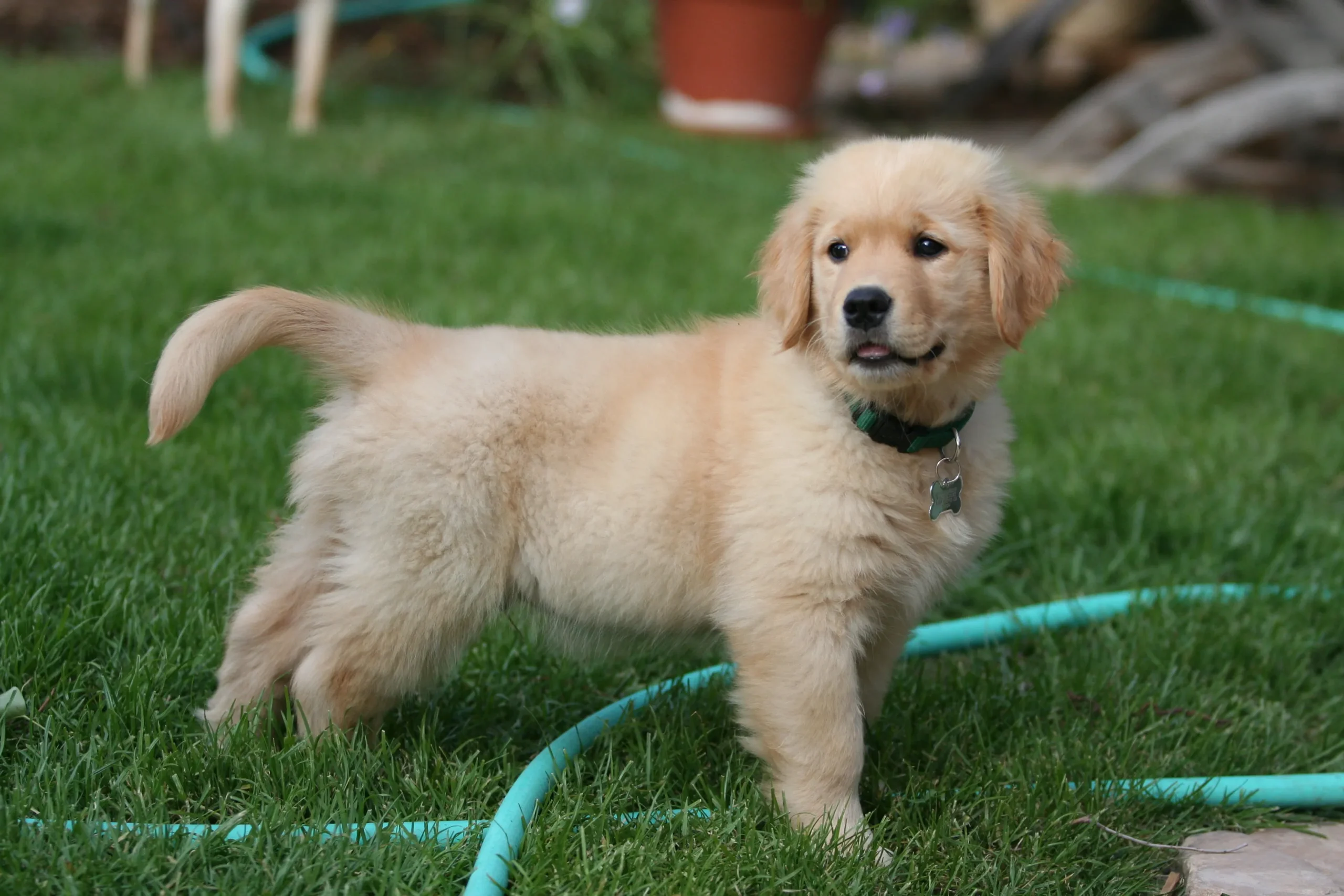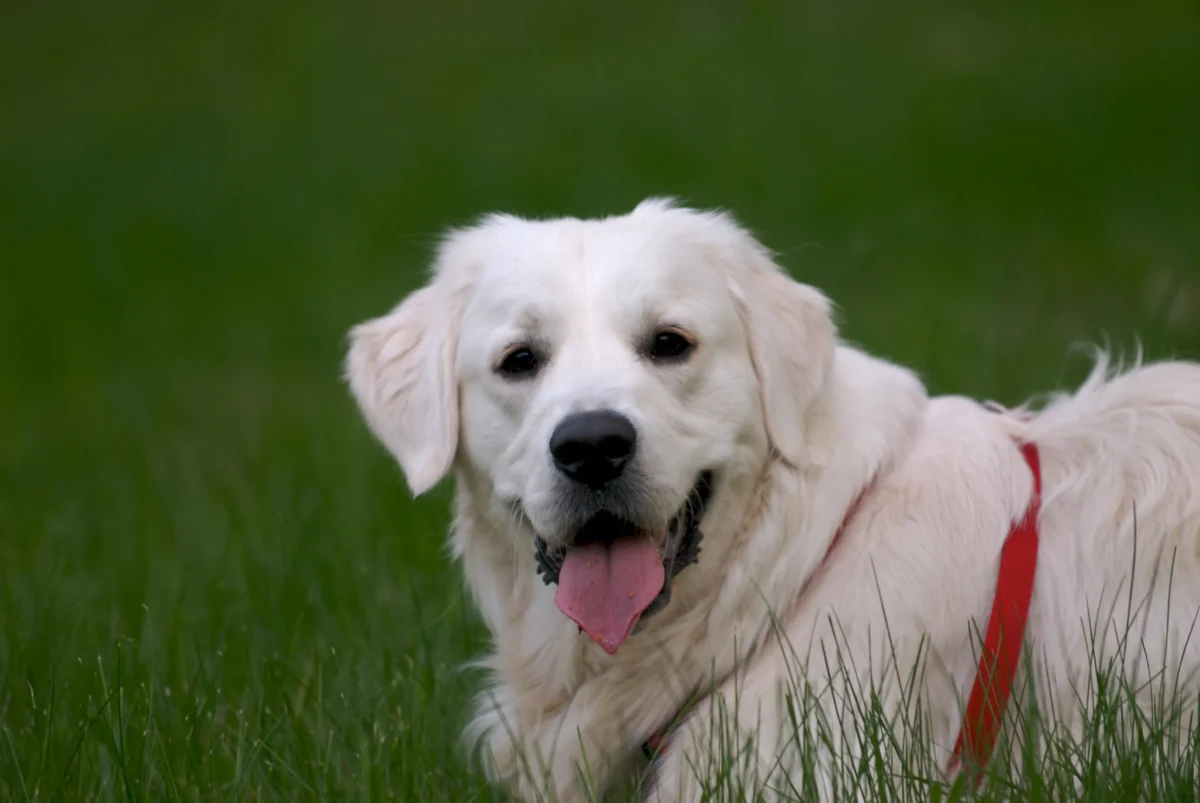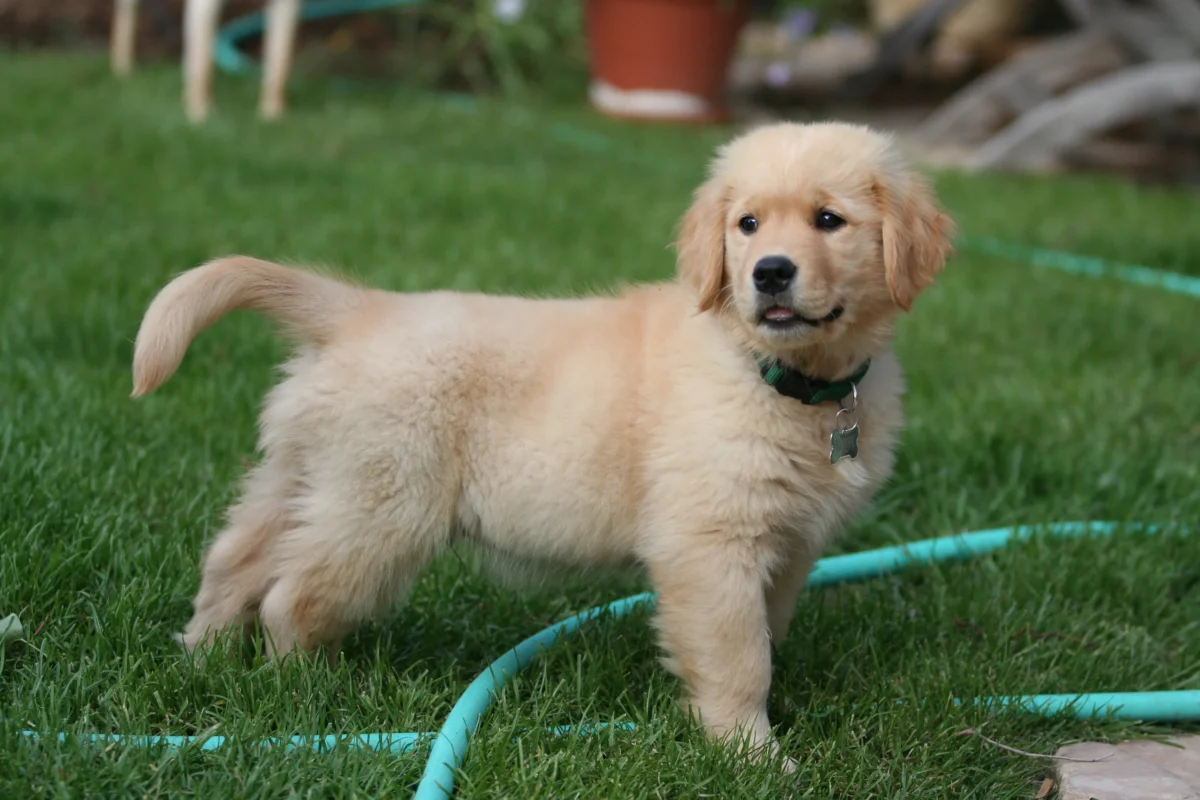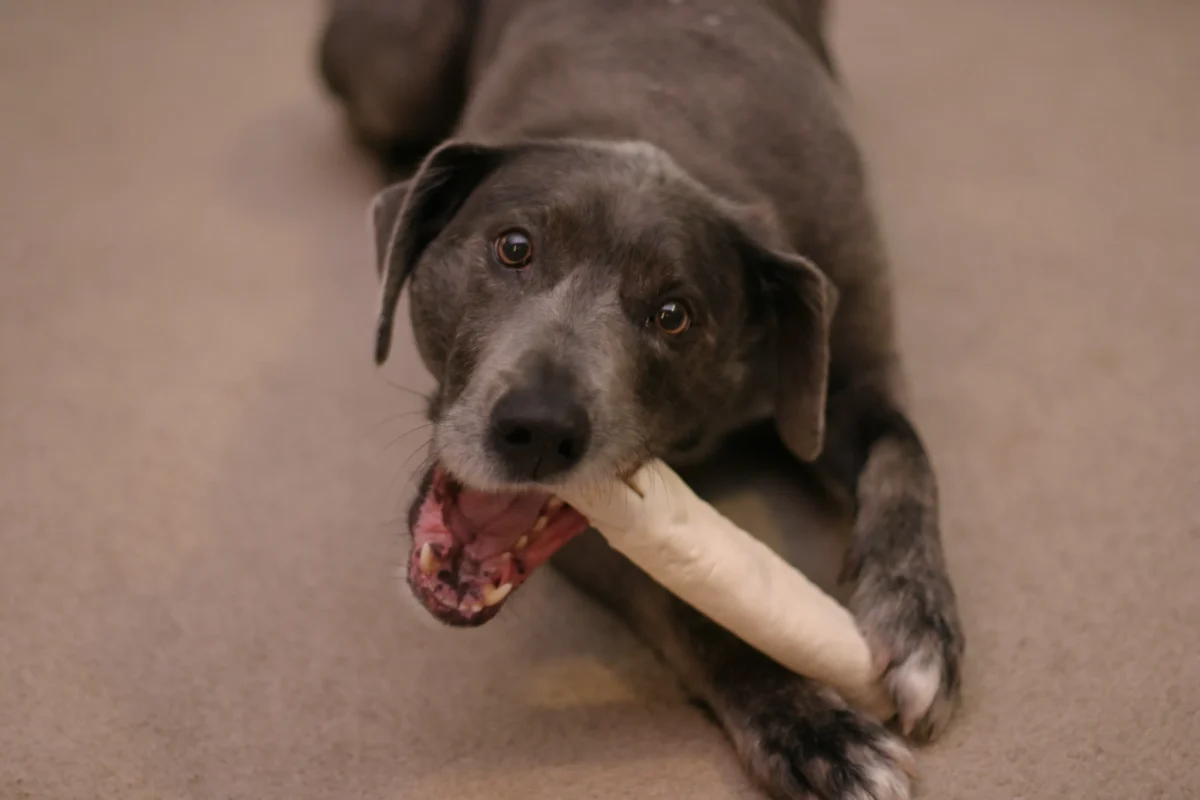Are you concerned about your golden retriever’s weight? Putting your furry friend on a diet can help them maintain a healthy weight and prevent potential health issues. In this article, we’ll provide you with some helpful tips on how to put your golden retriever on a diet without sacrificing their happiness or well-being. With a few simple adjustments to their diet and exercise routine, you can ensure that your beloved pet stays fit and healthy for years to come.
When it comes to putting your golden retriever on a diet, the first step is to consult with your veterinarian. They can assess your dog’s current weight and provide recommendations on the ideal weight range for their breed and size. Once you have a target weight in mind, you can then work together to develop a customized diet plan that meets your dog’s nutritional needs while promoting weight loss. Remember, it’s important to approach this process gradually and with patience to avoid any adverse effects on your pup’s overall health.
In addition to a balanced diet, regular exercise is crucial for your golden retriever’s weight management. Engaging in activities such as daily walks, playtime, and interactive games can help burn calories and keep your dog physically active. It’s essential to find activities that your golden retriever enjoys, as this will make it easier for them to stay motivated and engaged. By incorporating both a healthy diet and exercise routine into your golden retriever’s lifestyle, you’ll be well on your way to helping them achieve and maintain a healthy weight.
Understanding the Importance of a Healthy Weight for Your Golden Retriever
As a proud owner of a golden retriever or a Goldendoodle, you undoubtedly want the best for your furry friend. One essential aspect of their overall well-being is maintaining a healthy weight. Understanding the importance of this for your beloved pet is crucial in ensuring their quality of life.
Golden retrievers are known for their friendly and outgoing nature, as well as their love for food. However, excessive weight can lead to various health issues such as joint problems, heart disease, and decreased lifespan. That’s why it’s important to make sure your golden retriever is within their ideal weight range.
By keeping your golden retriever or Goldendoodle at a healthy weight, you are not only preventing potential health issues but also increasing their energy levels and overall happiness. A healthy weight promotes vitality, allowing your furry friend to fully enjoy their daily activities.
Maintaining a healthy weight for your golden retriever can be achieved through a combination of a well-balanced diet and regular exercise. Consulting with a veterinarian is the first step in determining the ideal weight range for your specific dog. They can create a personalized diet plan that takes into account your golden retriever’s age, activity level, and any other specific health considerations.
Implementing an exercise routine is also crucial in keeping your golden retriever at a healthy weight. Daily walks and playtime are excellent ways to keep your furry friend active and engaged. Not only will this help with weight management, but it will also provide mental stimulation and strengthen the bond between you and your golden retriever.
Remember, a healthy weight is key to ensuring the long-term well-being of your golden retriever or Goldendoodle. By understanding the importance of maintaining a healthy weight, you can provide the best possible care for your furry companion. Stay proactive, consult with professionals, and make their health a top priority.
Identifying Signs of Obesity in Your Golden Retriever
As a loving dog owner, keeping your furry friend healthy and happy is a top priority. Golden Retrievers are known for their gentle nature and playful personalities, but they are also prone to gaining weight. Obesity in dogs can lead to various health issues, so it’s crucial to identify the signs of obesity and take action. Here’s what you need to know:
1. Unhealthy weight gain – An overweight Golden Retriever may have trouble moving or become tired easily. You may notice excessive panting, reluctance to exercise, or a lack of enthusiasm during playtime. These signs indicate that your furry friend may be carrying extra weight.
2. Difficulty feeling their ribs – When you run your hands along your Golden Retriever’s sides, you should be able to feel their ribs without excessive fat covering. If you struggle to locate their ribs, it could be a sign that they are overweight.
3. Decreased waistline – A healthy Golden Retriever should have a distinct waistline when viewed from above. If your pup’s abdomen appears rounded or lacks that defined indentation, it may be due to excess fat.
4. Noticing fat deposits – Observe your Golden Retriever from the side. If you notice fat deposits around their neck, chest, and hips, it’s an indication that they are carrying too much weight.

« Discover the Surprising Similarities and Key Differences Between Golden Retrievers and Labrador Retrievers – Which Breed is Right for You?
Unleash the Secrets to Perfectly Handling Golden Retriever Puppies – A Guide to Pawsitive Success »
5. Seeking veterinary advice – If you suspect that your Golden Retriever may be overweight, it’s best to consult your veterinarian. They can conduct a thorough examination and provide guidance on the ideal weight range for your dog.
Remember, preventing obesity is key to your Golden Retriever’s overall health and well-being. By being proactive and identifying the signs of obesity, you can ensure that they lead a long, active, and happy life.
Stay tuned for the next section, where we’ll explore practical tips on how to help your golden retriever or Goldendoodle shed those extra pounds without compromising their well-being.
Consulting with a Veterinarian to Create a Diet Plan for Your Golden Retriever
As a loving dog owner, you want nothing but the best for your furry companion. If you’re considering putting your golden retriever on a diet, your first step should be to consult with a veterinarian. Here’s why it’s important and how they can help you create a personalized diet plan for your beloved golden retriever.
1. Understanding your golden retriever’s specific needs
Every dog is different, and this applies to their dietary requirements as well. A veterinarian can conduct a thorough examination of your golden retriever, taking into account their age, overall health, activity level, and current weight. This will enable them to determine the ideal weight range for your furry friend and develop a diet plan tailored to their specific needs.
2. Creating a balanced diet plan
A veterinarian has the expertise to create a well-balanced diet plan for your golden retriever. They will consider factors such as the right balance of protein, carbohydrates, and healthy fats, as well as essential vitamins and minerals. By partnering with a veterinarian, you can ensure that your golden retriever receives proper nutrition while shedding those extra pounds.
3. Monitoring progress and making necessary adjustments
When you consult with a veterinarian, they will provide guidance on how to monitor your golden retriever’s progress. Regular weigh-ins and body condition assessments will help track their weight loss journey. If any adjustments need to be made to their diet plan or exercise routine, your veterinarian will be there to support you every step of the way.

Remember, putting your golden retriever on a diet should be done with care and under the guidance of a professional veterinarian. They will provide you with the knowledge, resources, and support you need to help your furry friend achieve and maintain a healthy weight.
Choosing the Right Type and Quantity of Food for Your Golden Retriever’s Diet
When it comes to putting your golden retriever on a diet, choosing the right type and quantity of food is crucial for their overall health and well-being. As a dog lover and owner of both a golden retriever and a Goldendoodle, I understand the importance of making informed decisions about their diet to ensure they lead long and healthy lives. In this section, I’ll share some tips on selecting the best food for your golden retriever and determining the appropriate portion size.
Type of Food
1. Consult with a veterinarian: Before making any changes to your golden retriever’s diet, it’s always a good idea to consult with a veterinarian. They will provide valuable insights into your dog’s specific nutritional needs and recommend the best type of food to meet those requirements.
2. Look for high-quality, balanced diets: Opt for commercially available dog foods that are specifically formulated for golden retrievers or dogs of similar size and activity level. These diets are designed to provide the right balance of proteins, carbohydrates, and fats to support your dog’s overall health.
3. Consider a grain-free option: While not necessary for all golden retrievers, some dog owners choose grain-free diets for their pets. If you opt for this type of food, be sure to select a brand that meets all of your dog’s nutritional requirements.

Portion Size
1. Follow the feeding guidelines: Most dog food brands provide guidelines on the packaging that suggest an appropriate daily portion size based on your dog’s weight and activity level. Start by following these recommendations and adjust as necessary.
2. Monitor your dog’s weight and energy levels: It’s important to regularly monitor your golden retriever’s weight and energy levels to ensure they are neither gaining nor losing excessive weight. If you notice changes, consult with your veterinarian and adjust the portion size accordingly.
3. Use measuring cups: To avoid overfeeding, use a measuring cup to accurately portion out your dog’s meals. Eyeballing the portion size can lead to inaccuracies and potential weight issues.
Remember, every dog is unique, so it’s essential to find the right type and quantity of food that suits your golden retriever’s specific needs. By consulting with a veterinarian and closely monitoring their weight and energy levels, you can help them maintain a healthy, balanced diet and a happy, active lifestyle. Keep up the great work in caring for your
Implementing Portion Control and Feeding Schedule for Your Golden Retriever
When it comes to putting your golden retriever on a diet, one of the most important aspects to consider is portion control and establishing a feeding schedule. This will help ensure that your furry friend is getting the right amount of food at the right times, promoting a healthy weight and overall well-being. Here’s how you can implement portion control and a feeding schedule for your golden retriever:

1. Consult with a veterinarian: Before making any changes to your dog’s diet, it’s crucial to consult with a veterinarian. They can provide guidance on the appropriate portion sizes based on your golden retriever’s age, weight, activity level, and overall health. A veterinarian can also help you design a feeding schedule that aligns with your dog’s needs.
2. Choose the right food: Selecting high-quality, balanced diets for your golden retriever is essential. Look for dog foods specifically formulated for weight management or those that are low in calories and fat. These options will help your dog feel satisfied without consuming excessive calories.
3. Measure accurately: Invest in a set of measuring cups to accurately portion out your golden retriever’s meals. Eyeballing the amount of food can lead to uncontrolled portions, which may contribute to weight gain. Follow your veterinarian’s recommendations on the appropriate portion sizes for each meal.
4. Stick to a feeding schedule: Establishing a fixed feeding schedule provides structure and routine for your golden retriever. Feed your dog at the same times each day, and try to maintain consistency. Avoid free-feeding, where food is always available, as it can lead to overeating.
5. Avoid table scraps: While it may be tempting to share your leftovers with your furry companion, table scraps can add unnecessary calories to their diet. Stick to feeding them their regular meals and avoid giving in to those begging eyes.

6. Monitor their weight and adjust as necessary: Keep a close eye on your golden retriever’s weight and energy levels. Regularly weigh your dog and make adjustments to their portion sizes or feeding schedule as recommended by your veterinarian. Remember, gradual and steady weight loss is healthier than rapid weight loss.
By implementing portion control and a feeding schedule for your golden retriever, you’ll be promoting their overall health and well-being. Remember, consistency and communication with your veterinarian are key in achieving and maintaining a healthy weight for your furry friend.
Incorporating Exercise and Physical Activity into Your Golden Retriever’s Routine
When it comes to maintaining a healthy weight for your golden retriever, diet alone is not enough. Physical activity and exercise play a crucial role in keeping your furry friend fit, happy, and full of energy. Here are some ways you can incorporate exercise into your golden retriever’s routine:
1. Daily Walks: Taking your golden retriever for daily walks not only helps with weight management but also provides mental stimulation and an opportunity for socialization. Aim for at least 30 minutes to an hour of brisk walking each day. Remember to adjust the duration and intensity based on your dog’s age, fitness level, and any underlying health conditions.
2. Active Playtime: Golden retrievers have a natural love for play, so make the most of it by engaging in active play sessions. Play fetch, frisbee, or simply chase each other around the yard. Not only will your dog get exercise, but you’ll also have a blast bonding with your furry companion.

3. Swimming: Golden retrievers are often excellent swimmers, thanks to their water-repellent coat and webbed toes. If you have access to a safe and clean swimming area, take advantage of it. Swimming is an excellent low-impact exercise that engages your dog’s whole body and relieves joint stress.
4. Agility Training: Golden retrievers are intelligent and highly trainable. Consider enrolling your dog in agility training classes. Not only will this provide an opportunity for mental and physical exercise, but it can also strengthen the bond between you and your golden retriever as you work together as a team.
5. Dog Sports: Golden retrievers excel in various dog sports like obedience, rally obedience, and flyball. These activities not only keep your dog physically active but also challenge their mental capabilities. Participating in dog sports can be a great way to keep your golden retriever physically fit while having fun together.
Remember, exercise should be tailored to your golden retriever’s individual needs. Always consult with your veterinarian before starting any new exercise routine, especially if your dog has health concerns or is older. Incorporating regular exercise into your golden retriever’s routine will not only help them maintain a healthy weight but also promote overall well-being and happiness.
Monitoring Your Golden Retriever’s Progress and Making Adjustments to the Diet Plan
Once you have established a customized diet plan for your golden retriever, it’s important to monitor their progress regularly. This will help you ensure that they are on track to reach their ideal weight and maintain a healthy lifestyle. Here are a few tips for monitoring your golden retriever’s progress and making necessary adjustments to their diet plan:

- Weigh your golden retriever regularly: Start by weighing your golden retriever and note down their weight. It’s recommended to weigh them every two weeks to track any changes. This way, you can keep a record of their progress and address any weight gain or loss promptly.
- Observe their body condition: Apart from weighing them, it’s crucial to observe your golden retriever’s body condition. Use the body condition scoring system to evaluate their body fat and muscle tone. This will give you a holistic view of their overall health and help you make informed decisions regarding their diet.
- Consult with your veterinarian: Regularly consult with your veterinarian to discuss your golden retriever’s progress and get expert advice. They can guide you on how to fine-tune the diet plan and make any necessary adjustments based on your dog’s individual needs.
- Consider portion control: If your golden retriever is not showing the desired progress, you may need to adjust their portion sizes. Speak to your veterinarian about reducing the portion slightly or redistributing the calorie intake throughout the day.
- Ensure the right balance of nutrients: It’s important to ensure that your golden retriever is receiving the right balance of nutrients in their diet. Consult with your veterinarian to make sure that their dietary needs are being met and that they are getting enough essential nutrients, such as protein, fiber, and healthy fats.
By closely monitoring your golden retriever’s progress and making necessary adjustments to their diet plan, you can help them achieve and maintain a healthy weight. Remember, consistency and patience are key when it comes to their fitness journey. Stay committed to providing them with a well-balanced diet and regular exercise, and you’ll see positive changes in their overall health and well-being.
Conclusion
By prioritizing your golden retriever’s health and well-being through a balanced diet and regular exercise, you can ensure a long, active, and happy life for your furry companion. Maintaining a healthy weight is essential for their overall happiness and energy levels. Consulting with a veterinarian to determine the ideal weight range and develop a customized diet plan is crucial. Incorporating exercise and physical activity into their routine, such as daily walks, active playtime, swimming, agility training, and participating in dog sports, will help them stay fit. Monitoring their progress and making adjustments to their diet plan, such as regularly weighing them, observing their body condition, considering portion control, and ensuring the right balance of nutrients, will ensure their weight loss journey is on track. Remember, a healthy weight for your golden retriever not only reduces the risk of potential health issues but also improves their quality of life. So, start implementing these tips today and watch your golden retriever thrive with a healthier lifestyle!








